Although Hello Kitty is its most recognizable icon, she’s not the only star in the Sanrio lineup of cute mascot characters. Pink-hooded rabbit My Melody also has a loyal fanbase since her debut in 1975, and starting this month, she’ll be getting her own cafe in Tokyo, complete with palate-pleasing pink parfaits, curry, and special My Melody merchandise you won’t be able to find anywhere else.
Posted by Casey Baseel (Page 525)
It’s kind of sad to think that with the Sapporo Snow Festival over, the event’s awesome Star Wars snow sculpture is demolished and melted. Thankfully, if you’re still feeling the icy allure of epic science fiction and low temperatures, there’s another way to combine the two, and this time in the home, with your very own R2-D2 fridge droid!
Last month, we got our first peek at the brand-new statue of Hachiko, in which Japan’s most famous dog is reunited with his loving master after almost a century apart. But while Hachiko’s legendary loyalty is inspiring, we weren’t waiting 100 years to see the statue for ourselves.
With the piece now installed and open to viewing by the public, we made the trip to the campus of the University of Tokyo, and we’ve brought plenty of photos and video that we shot while looking at Hachiko through both our viewfinder and a constant stream of tears.
Last month, we took a look at a pair of kicks from anime fashion retailer Super Groupies and shoemaker Ubiq featuring Mega Man, the super fighting robot that’s loved by everyone (except video game publisher Capcom, it seems). But while the Mega Man shoes are actually pretty unisex in design, this month Super Groupies and Ubiq ae teaming up again with footwear that’s just for the ladies, with sailor-collared sneakers inspired by anime and manga Cardcaptor Sakura, and a dazzling necklace too for fans of the magical girl.
Assuming it’s done in a gentlemanly manner, I don’t see anything wrong with a man who spots an attractive woman politely introducing himself. Good manners of course dictate that if she appears bothered or uninterested he should abort with all haste. As long as the initial overture is made in a respectful manner, though, I don’t see the harm in taking a shot, low-percentage as it may be, to see if the woman is receptive to a little conversation.
In my time in Japan I’ve even seen a few instances of men and women who just met on the train chatting happily with each other, then exchanging phone numbers or email addresses before one gets off. Still, even I draw the line somewhere, and it’s at a point well before suddenly planting your lips on a woman you’ve never spoken to, as one man recently did while riding the rails in Wakayama Prefecture.
Like any healthy human beings, our ears perk up at the mention of “a dozen cookies.” But while we were all set to spoil our appetites with the tasty treats, it turns out that these particular sweets aren’t edible.
Ordinarily, we’d be storming off in a huff, but we’re giving these imposters a pass, because they’re a set of 12 cookie-themed Sailor Moon charms.
Each neighborhood of Tokyo has its own unique feel, but it’s hard to top Shinjuku. Located in the heart of downtown, Shinjuku has just about everything you could ask for in a modern metropolis, boasting such attractions as a beautiful garden, extensive shopping options, an uncountable array of restaurants and bars, and the RocketNews24 offices.
And now, there’s one more reason to come to Shinjuku. A big one in fact, as the King of the Monsters, Godzilla himself, is literally watching over the district in the form of a life-size replica of the creature’s head peering down from one of its skyscrapers.
Released a little less than two months ago, smartphone game Touken Ranbu, with a cast of characters made up of famous swords from history transformed into handsome young men, has proven itself to be a solid hit. It’s just the latest success story, though, in the established video game genre of “many attractive people who’re actually anthropomorphized [something].”
Still, samurai swords seem like a pretty good well to draw from in creating heroic video game characters. But can you replicate that kind of enthusiastic response with household appliances and consumer electronics though? We’re about to find out, with the upcoming title Kaden Shojo, which has you saving the world with a the help of a toaster, washing machine, and refrigerator, all of whom, of course, take the form of cute anime girls.
Four years on, the earthquake, tsunami, and nuclear crisis that befell Japan’s Tohoku region on March 11, 2011 have very little effect on the day-to-day lives of most people in the country. The rolling blackouts have stopped. Batteries and bottled water are once again readily available. Trains are running, and whole cities aren’t spending hours walking home from work or school.
But while a return to normalcy is a desirable, and ultimately necessary, part of recovery, it’s also important to remember what happened. To stem the forgetfulness that often accompanies the later stages of coping with tragedy, on March 11 Yahoo! Japan will be making a donation to the Tohoku recovery efforts for every person that searches for “3.11” through the company’s search engine.
If you were fighting the temptation to dig into confectioner Cozy Corner’s selection of cakes inspired by the leading ladies of the Disney animated canon, congratulations. Your struggle is over, since as of March 4, they’re no longer available.
If, on the other hand, you were hoping to try the stylish sweets for yourself but just couldn’t find the time, you have our sincere sympathies. Don’t feel too bad, though, because no sooner has one set of Cozy Corner Disney desserts bowed out than another has appeared on the scene, this time featuring the studio’s beloved characters cosplaying as Easter bunnies.
Late last month, we got indisputable visual evidence (which is by no means to be confused with humorous photoshopped evidence) of something we’ve been suspecting for the last several years: U.S. President Barack Obama is a huge fan of cute girl anime.
Politics being what they are, the vice president tends to follow the president’s lead on major issues such as foreign affairs, economic policy, and what gets watched on the federal property DVD players after all those press conferences are over. So it’s only natural that images, every bit as convincing as those of President Obama, have now surfaced showing Vice President Joe Biden to be passionately infatuated with the teenaged idols of anime Love Live!
As the cuisine of one country becomes popular inn others, sometimes it picks up new ingredients and variations of part of its journey around the globe. For example, spaghetti bolognese is incredibly popular in Japan, but so is pasta with mentaiko (spicy cod roe).
The fact that the latter isn’t something you’d ever find in an authentic Italian restaurant doesn’t make it any less delicious. So when our Japanese-language reporter Yuichiro spotted a restaurant in the Netherlands advertising ramen with one very unusual ingredient, he decided to give it a shot. Little did he know, though, that the surprises were just beginning.
Some of you may remember the fateful day last spring when our Japanese-language reporter Go bought what was probably the cheapest car in Japan by acquiring his current ride for just 980 yen (US $8.30). Nine months later, not only is his 1997 Mitsubishi Minica still firing on all three cylinders under its hood, but it recently passed its mandatory biennial safety inspection, called shaken in Japanese.
In celebration, Go treated the Minica to a wash for the first time since he drove it back to Tokyo from Nagoya. With a fresh coat of wax, it was looking better than ever, but Go still wasn’t 100-percent satisfied with the car’s appearance. See, Go believes the Mini is just an overall cooler car than the Minica, so he set out to transform the latter into the former using the finest vinyl sheets and magic markers he could find.
After three months of cold weather, I’m ready for spring. Coincidentally, after a long week of work, I’m ready for a beer.
Lucky me, these two desires have dovetailed perfectly in the form of Kanagawa Prefecture microbrewer Sankt Gallen’s newest offering, made with the petals of the harbinger of Japanese spring, cherry blossoms. So strap on your drinking caps, because it’s time for the sakura beer taste test!
There are a ton of different ways to eat mochi, with roasting it or dropping it into soup or hot pots being some of the more common. Outside of Japan, though, many people’s first encounter with mochi is in the form of ice cream-filled mochi spheres sold at specialty grocers.
But while they make a tasty treat, what would happen if you reversed the process, and instead of putting ice cream in mochi, put mochi into ice cream? That’s the question posed by Häagen-Dazs new kinako kuromitsu mochi ice cream, and we’re here with the answer.
In January, video game giant Nintendo, which usually sleeps atop a well-padded mattress stuffed with the customer goodwill it’s earned over three decades of providing quality titles, sadly announced it would be discontinuing its Club Nintendo loyalty program. With only months to go before Club Nintendo points (also called “coins” or “stars” depending on the region) become worthless, gamers have been scouring the catalog to see what prizes they want to redeem theirs for.
To help loosen their virtual purse strings, Nintendo has just announced a huge new batch of rewards, including some very stylish T-shirts and pouches based on its legendary library of games.
In the year since it opened in Tokyo’s Ikebukuro, we’ve become big fans of the Kit Kat Chocolatory, the specialty store for the chocolate-covered wafers that’re especially popular in Japan. As a matter of fact, somewhere in the course of our multiple visits to procure the latest and greatest Kit Kat flavors, we’ve forgotten what life was like before the shop opened.
But while we’re living in the land of plenty with two different Chocolatory locations in Tokyo (the second is near Tokyo Station), not all of Japan is so fortunate. Until now, only residents of Tokyo, Kyoto, and Nagoya could claim their town had its own Kit Kat paradise.
That’s about to change, though, as a new Kit Kat Chocolatory is opening soon in Hokkaido, and bringing a new flavor with it: butter.
The rumors of Naruto’s death have been greatly exaggerated. Sure, last November marked the end of creator Masashi Kishimoto’s manga, after an amazing 15 years of serialization collected into 72 volumes. But while manga fans no longer get to see their ninja pals in the pages of weekly anthology Shonen Jump, elsewhere Naruto and company have been popping up all over the place.
The anime TV series is still ongoing, and last December’s The Last: Naruto the Movie isn’t as conclusive as it sounds, as there’s another Naruto theatrical feature scheduled for release in August. Then, of course, there’s the highly anticipated stage adaptation of the series.
And if all that’s still not enough for you, there’s an exhibition of Naruto artwork set to open in Tokyo and Osaka soon, with a sneak peak just a week away.
Last year, something beautiful came to Japan. It was only here for a short while, but in that time, it left a deep impression on many people, including us here at RocketNews24. And while we were sad to see it go, it’s time to dry our tears, because this spring, it’s coming back again!
So, all excited for cherry blossom season? That’s great, but what we’re actually talking about right here are Kentucky Fried Chicken-flavor potato chips.

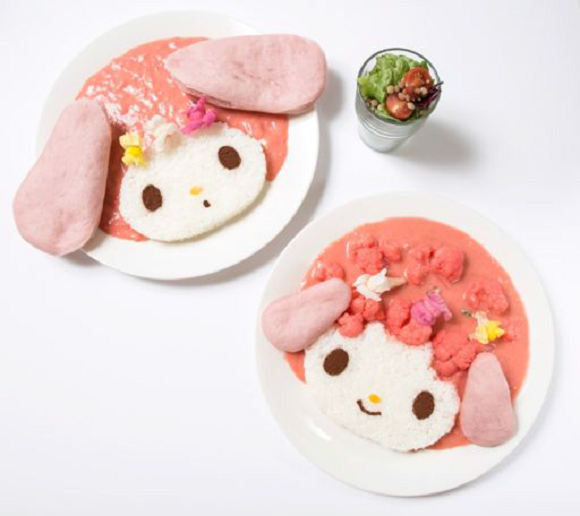


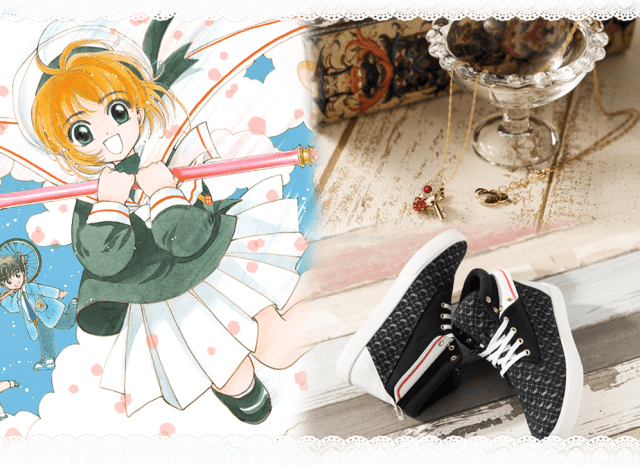

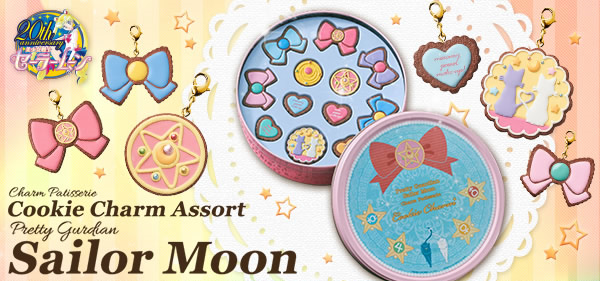
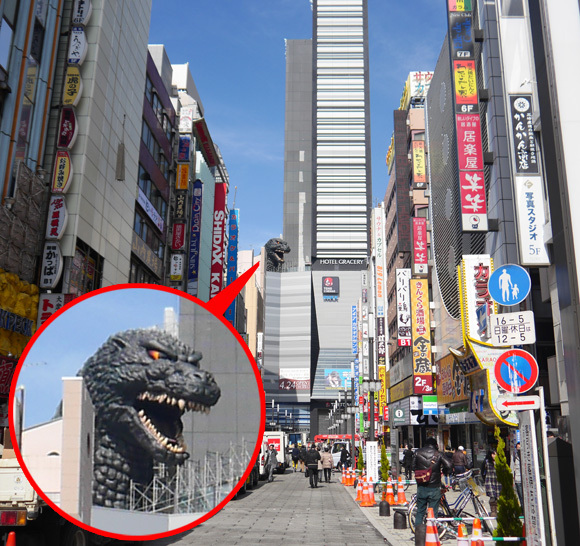
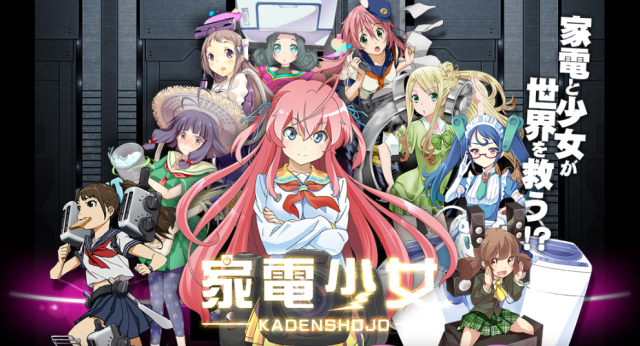
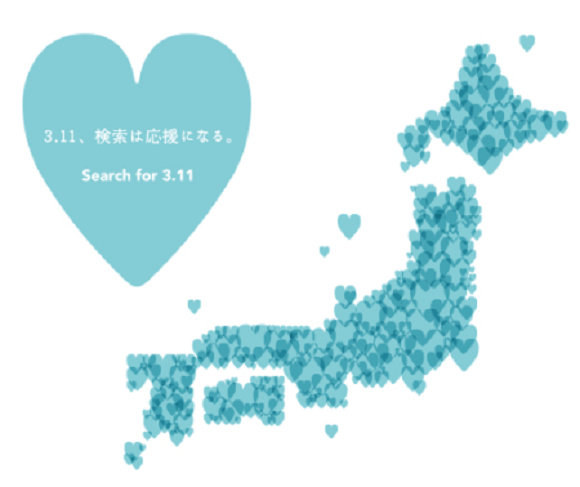



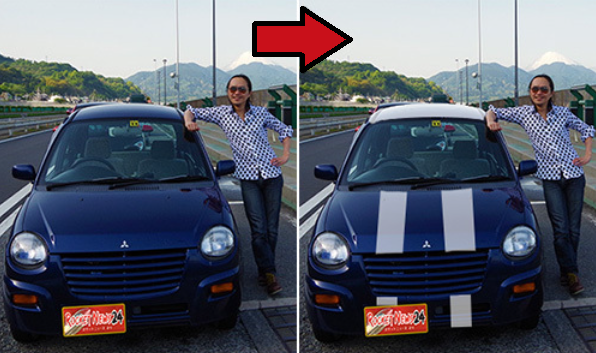
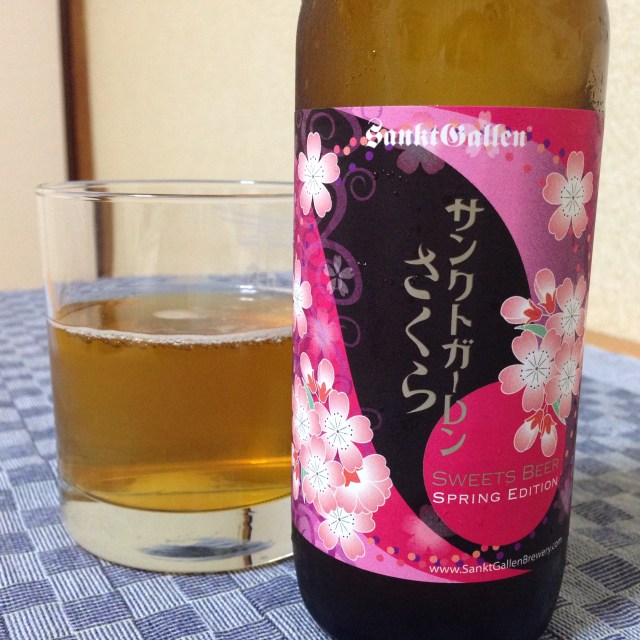
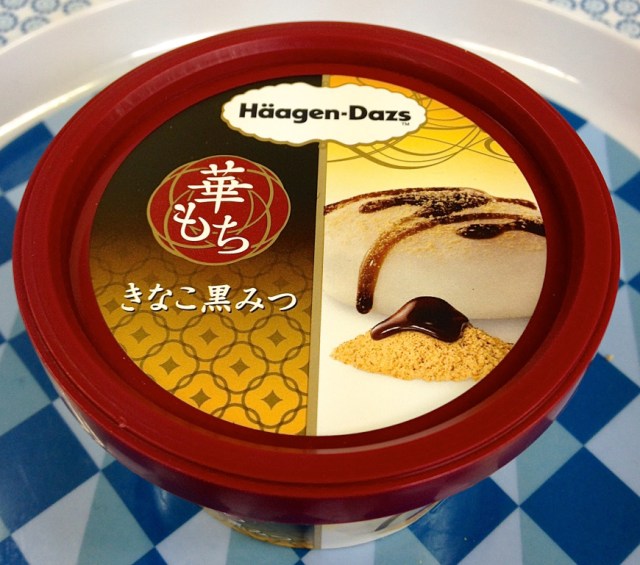




 Burning through cash just to throw things away tops list of headaches when moving house in Japan
Burning through cash just to throw things away tops list of headaches when moving house in Japan The 10 most annoying things foreign tourists do on Japanese trains, according to locals
The 10 most annoying things foreign tourists do on Japanese trains, according to locals Japan’s new “Cunte” contact lenses aren’t pronounced like you’re probably thinking they are
Japan’s new “Cunte” contact lenses aren’t pronounced like you’re probably thinking they are Minecraft User Decides to Make Kinkakuji, Eventually Creates the Entire City of Kyoto
Minecraft User Decides to Make Kinkakuji, Eventually Creates the Entire City of Kyoto 10 things you should buy at 7-Eleven in Japan
10 things you should buy at 7-Eleven in Japan Foreign tourists in Japan will get free Shinkansen tickets to promote regional tourism
Foreign tourists in Japan will get free Shinkansen tickets to promote regional tourism Chun-Li cosplay cold shoulders inspire crazy Photoshop “fixes,” help spread love between rivals
Chun-Li cosplay cold shoulders inspire crazy Photoshop “fixes,” help spread love between rivals Studio Ghibli’s truck from My Neighbour Totoro now available as die-cast Takara Tomy car
Studio Ghibli’s truck from My Neighbour Totoro now available as die-cast Takara Tomy car Shibuya Station’s Hachiko Gate and Yamanote Line stairway locations change next month
Shibuya Station’s Hachiko Gate and Yamanote Line stairway locations change next month This budget hotel near Tokyo Dome has one of the best breakfast buffets in the city
This budget hotel near Tokyo Dome has one of the best breakfast buffets in the city Starbucks Japan releases new sakura goods and drinkware for cherry blossom season 2026
Starbucks Japan releases new sakura goods and drinkware for cherry blossom season 2026 Naruto and Converse team up for new line of shinobi sneakers[Photos]
Naruto and Converse team up for new line of shinobi sneakers[Photos] Starbucks Japan unveils new sakura Frappuccino for cherry blossom season 2026
Starbucks Japan unveils new sakura Frappuccino for cherry blossom season 2026 Now is the time to visit one of Tokyo’s best off-the-beaten-path plum blossom gardens
Now is the time to visit one of Tokyo’s best off-the-beaten-path plum blossom gardens Is Sapporio’s Snow Festival awesome enough to be worth visiting even if you hate the snow? [Pics]
Is Sapporio’s Snow Festival awesome enough to be worth visiting even if you hate the snow? [Pics] Japan has trams that say “sorry” while they ride around town…but why?
Japan has trams that say “sorry” while they ride around town…but why? Sakura Totoro is here to get spring started early with adorable pouches and plushies
Sakura Totoro is here to get spring started early with adorable pouches and plushies Poop is in full bloom at the Unko Museums for cherry blossom season
Poop is in full bloom at the Unko Museums for cherry blossom season Japan’s newest Shinkansen has no seats…or passengers [Video]
Japan’s newest Shinkansen has no seats…or passengers [Video] Foreigners accounting for over 80 percent of off-course skiers needing rescue in Japan’s Hokkaido
Foreigners accounting for over 80 percent of off-course skiers needing rescue in Japan’s Hokkaido Super-salty pizza sends six kids to the hospital in Japan, linguistics blamed
Super-salty pizza sends six kids to the hospital in Japan, linguistics blamed Archfiend Hello Kitty appears as Sanrio launches new team-up with Yu-Gi-Oh【Pics】
Archfiend Hello Kitty appears as Sanrio launches new team-up with Yu-Gi-Oh【Pics】 Take a trip to Japan’s Dododo Land, the most irritating place on Earth
Take a trip to Japan’s Dododo Land, the most irritating place on Earth China’s don’t-go-to-Japan warning looks to be affecting tourist crowds on Miyajima
China’s don’t-go-to-Japan warning looks to be affecting tourist crowds on Miyajima Survey asks foreign tourists what bothered them in Japan, more than half gave same answer
Survey asks foreign tourists what bothered them in Japan, more than half gave same answer Japan’s human washing machines will go on sale to general public, demos to be held in Tokyo
Japan’s human washing machines will go on sale to general public, demos to be held in Tokyo Starbucks Japan releases new drinkware and goods for Valentine’s Day
Starbucks Japan releases new drinkware and goods for Valentine’s Day We deeply regret going into this tunnel on our walk in the mountains of Japan
We deeply regret going into this tunnel on our walk in the mountains of Japan Studio Ghibli releases Kodama forest spirits from Princess Mononoke to light up your home
Studio Ghibli releases Kodama forest spirits from Princess Mononoke to light up your home Major Japanese hotel chain says reservations via overseas booking sites may not be valid
Major Japanese hotel chain says reservations via overseas booking sites may not be valid Put sesame oil in your coffee? Japanese maker says it’s the best way to start your day【Taste test】
Put sesame oil in your coffee? Japanese maker says it’s the best way to start your day【Taste test】 No more using real katana for tourism activities, Japan’s National Police Agency says
No more using real katana for tourism activities, Japan’s National Police Agency says Foreign tourists in Japan will get free Shinkansen tickets to promote regional tourism
Foreign tourists in Japan will get free Shinkansen tickets to promote regional tourism Chun-Li cosplay cold shoulders inspire crazy Photoshop “fixes,” help spread love between rivals
Chun-Li cosplay cold shoulders inspire crazy Photoshop “fixes,” help spread love between rivals Studio Ghibli’s truck from My Neighbour Totoro now available as die-cast Takara Tomy car
Studio Ghibli’s truck from My Neighbour Totoro now available as die-cast Takara Tomy car Shibuya Station’s Hachiko Gate and Yamanote Line stairway locations change next month
Shibuya Station’s Hachiko Gate and Yamanote Line stairway locations change next month This budget hotel near Tokyo Dome has one of the best breakfast buffets in the city
This budget hotel near Tokyo Dome has one of the best breakfast buffets in the city Abysmal viewer ratings for Pokémon anime series does not worry its broadcaster the slightest bit
Abysmal viewer ratings for Pokémon anime series does not worry its broadcaster the slightest bit Hungry and on the go? Top 10 ranking of ekiben at Tokyo’s Shinagawa Station
Hungry and on the go? Top 10 ranking of ekiben at Tokyo’s Shinagawa Station Studio Ghibli unveils My Neighbour Totoro miniature house model
Studio Ghibli unveils My Neighbour Totoro miniature house model Totoro fountain figurine recreates the sights and sounds of one of anime’s most memorable scenes
Totoro fountain figurine recreates the sights and sounds of one of anime’s most memorable scenes Our writer Seiji becomes the face of baldness on Google Japan
Our writer Seiji becomes the face of baldness on Google Japan Last chance coming up for amazing east Japan for all-you-can-ride Shinkansen-inclusive train pass
Last chance coming up for amazing east Japan for all-you-can-ride Shinkansen-inclusive train pass Starbucks Japan releases new sakura goods and drinkware for cherry blossom season 2026
Starbucks Japan releases new sakura goods and drinkware for cherry blossom season 2026 Meet the kind Japanese grandpa who takes photos for tourists at the Hachiko statue in Shibuya
Meet the kind Japanese grandpa who takes photos for tourists at the Hachiko statue in Shibuya Starbucks Japan unveils new sakura Frappuccino for cherry blossom season 2026
Starbucks Japan unveils new sakura Frappuccino for cherry blossom season 2026